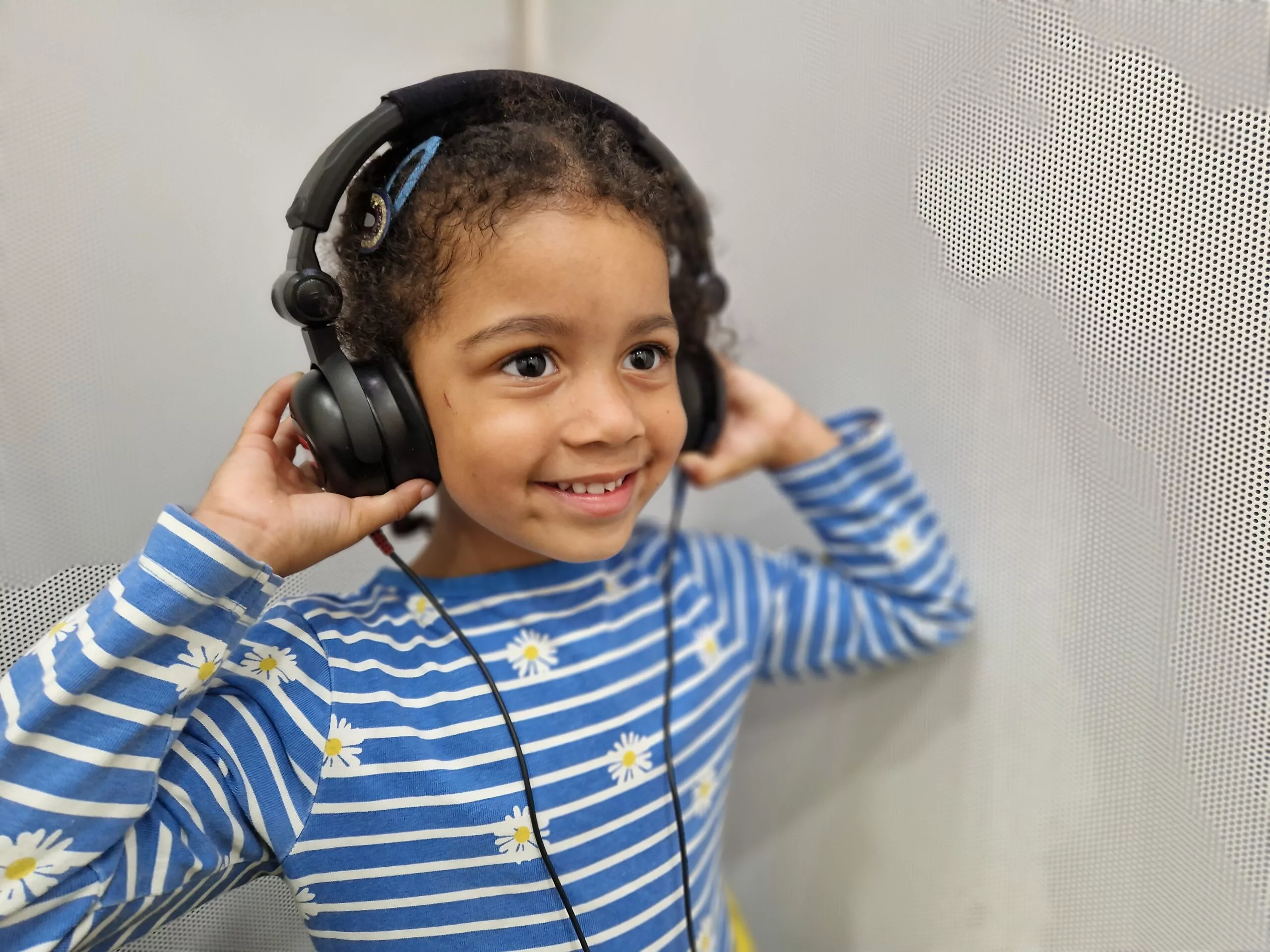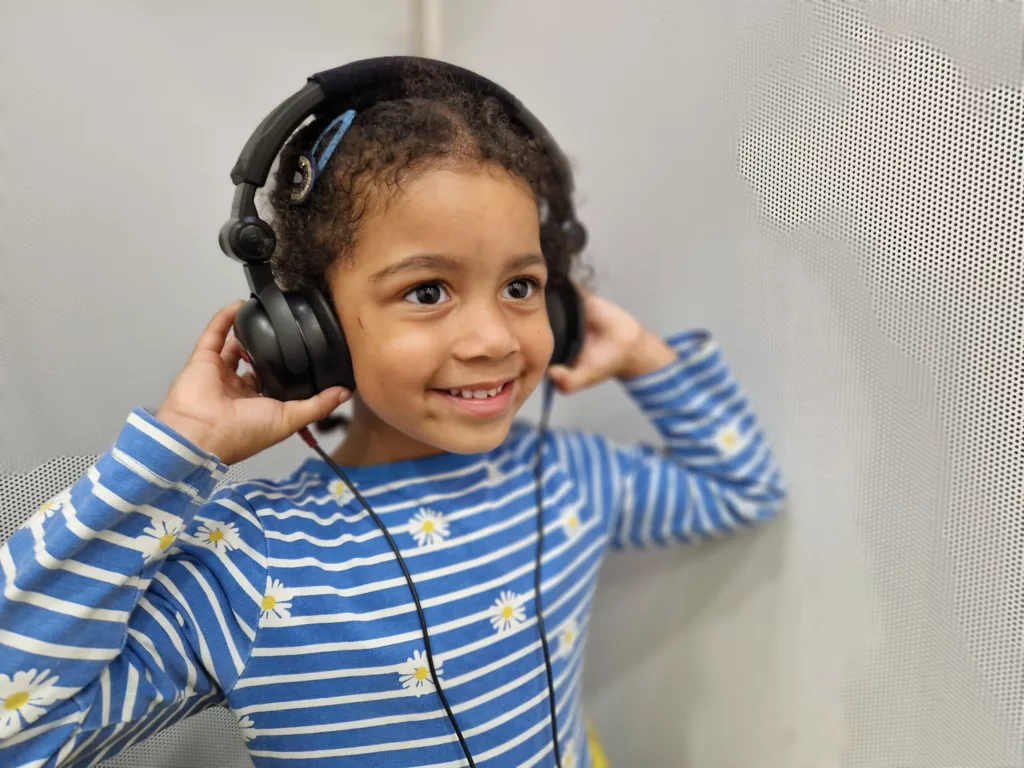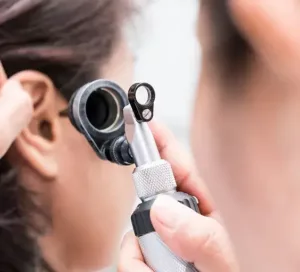Most parents contact us because they or someone else (like their teacher) is concerned about their little one’s hearing.
The most common queries we get are: “My child failed their school entry hearing test”, “I am concerned my child speaks loudly and has the TV/i-pad volume louder than others prefer it”, I am concerned my child does not respond to their name most times and asks for lots of repetition when spoken to”.
In our experience, we have found that most of these children are either suffering from blocked ear from excessive wax buildup, glue ear (a buildup of fluid in the middle ear), an ear infection, or in very rare cases a permanent hearing loss that went undiagnosed at birth or is progressive in nature.
As a rule of thumb, book a hearing test for your child if you or any other person they interact with often has concerns about their hearing. It’s never worth the risk guessing.
Worried about your child’s hearing? Speak to one of our Paediatric Audiologists

First steps to take
Call your GP and share your concerns with them. Depending on the availability of services where you live your child may be able to see the paediatric audiologist at your local NHS department in a few weeks. Unfortunately, parents have reported to us that it has become more common to wait upwards of six (6) months for a children’s hearing test on the NHS due to the current waiting list pressure on the NHS.
Some parents would like answers quicker so they contact a service like ours. We are usually able to offer a children hearing test within 48 hours for children who are 2.5 years and older.
Typically, while you would need separate appointments on the NHS if your child needed earwax removal as well as a hearing test, we are able to achieve both on the same day if needed.
What happens if my child has hearing loss?
The management plan for your child would be dependent on the nature of your child’s hearing loss. Is it temporary or permanent? If it is a temporary hearing loss, caused by earwax or an ear infection, removing the earwax or treating the ear infection should mean that their hearing is restored.
If your child is diagnosed with glue ear, then first I want to say – don’t lose sleep over this but don’t trivialise the implications it could have if not managed properly. Glue ear is essentially fluid in the middle ear that affects 8 in 10 children before the age of 10. It would cause a temporary hearing loss in most cases and can resolve spontaneously. Once diagnosed with glue ear and a hearing loss, the correct management plan would be to start otoinflation exercises using an otovent in an attempt to decongest the middle ear while providing bone conduction hearing aids (used specifically for conditions like this) to help your child hear better. We anticipate that glue ear would resolve on without any more intervention in most cases. If glue ear remains present at your child’s review appointment, a referral should be made to an Ear, Nose and Throat doctor for consideration of grommets (a small tube inserted in the eardrum to drain the fluid in the middle ear space).
If your child is diagnosed with a permanent hearing loss, then there are a few things to be considered. First, they would need an aetiology appointment. Think of this as a fact finding mission. We want to know what caused the hearing loss. Is it genetic? If yes, is it a common genetic anomaly we know of? Is this linked to a syndrome? Can we do anything to help them get their hearing back? And many other questions. This fact finding mission would usually be undertaken by a doctor called an audiovestibular physician (it’s a mouthful – I know). Alongside these investigations, arrangements would be made to fit your child with a hearing aid, and their local teacher for the deaf would be notified. My personal opinion is that because of the complexity of permanent hearing loss, for UK residents, it is best managed with significant input from the NHS. Not to say, it can’t be done privately, but there are a lot of moving parts and we mostly only see these cases when the child wants technology not available to them on the NHS.
Your child may not be ignoring you. Speak to an expert Paediatric audiologist

Who are teachers for the deaf?
The real answer. These are a bunch of amazing folk that make sure children with hearing loss are coping well with their hearing aids and assistive devices in a classroom setting. We like them!
Conclusion
So, hopefully, you have a good overview of potential causes of hearing loss, the importance of getting a hearing assessment for your child if you’re worried, what help is available to your child on the NHS, and lastly, when/how to engage with a private service like ours if you’re keen on getting answers about your child’s hearing promptly.
It’s the wise decision. Book a hearing test for your child




